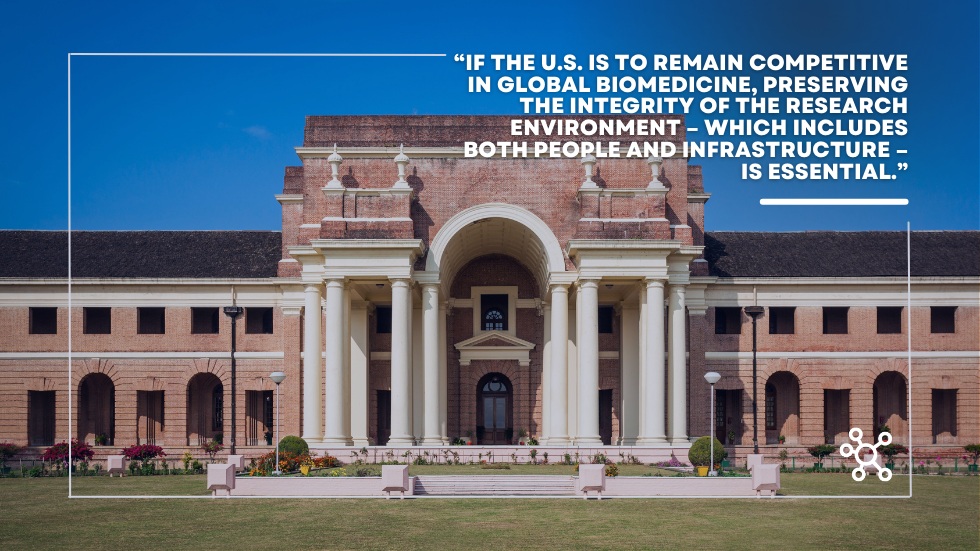As the number of COVID-19 cases drop and social distancing measurements relax, in-person networking events will start returning. For many scientists and science students, their understanding of ‘networking’ is at best a foreign concept with no applicability to their career path, and at worst they think there’s something almost underhanded about schmoozing your way into a job.
Unfortunately for those scientists, networking is critical to securing jobs inside and outside academia. For STEM students and postdocs who are uncertain about their future career path, networking can provide opportunities and insight that academic mentors are unavailable to provide. But the good news is networking doesn’t have to be awkward or embarrassing. In fact, it can be informative and fun.
Here are some tips and tricks that any scientist – or introverted person – can use to help network more effectively.
What is networking?
A common misconception about networking is that it’s all about trying to get a job. Networking is a conversation. It’s about forming a mutually-beneficial professional connection. When defined like that, you can see networking takes place all the time on a large and small scale. A 5 minute conversation with a visiting lecturer is networking, but a 5 minute conversation at a family BBQ can be networking, too! Presenting a poster at an international conference is definitely a networking situation. Research collaborators and colleagues within your department are network contacts, but any people you meet and interact with have the potential to be network contacts as well–you never know who other people know.
Networking rarely yields immediate results: it can take months (or years) for the benefits of networking efforts to show. Recruiters at the mixer you attend may not know of suitable job openings right then, but several weeks later when a job opportunity arises they may – if you networked successfully – remember your name.
Because of this, it’s helpful to begin networking 6-12 months before you finish your PhD or postdoc, the earlier the better. It takes time to build connections and become comfortable networking with others.
Getting the most out of networking events
While a lot of networking can happen organically, dedicated networking events are a great opportunity to meet new people you wouldn’t otherwise encounter within an academic research setting. These events might take place in conjunction with symposia and conferences, or be organized by professional societies.
Before arriving at a networking event, think about your career goals and how other attendees could help you. Are you actively looking for a job? Or still trying to figure out what you want to do? Distill your objectives into a couple of sentences and get comfortable explaining them.

“During my first networking event at a career fair, I was nervous and not quite sure what to expect or talk about. After a few interactions I realized that all I had to do was introduce myself, have a candid conversation, exchange contacts, and then I had a networking connection.” Carter Lewis, Sci.bio Recruiting Associate
Despite the fact you need a game plan, it helps to go into networking events with an open mind. Everyone in the room has the potential to help you meet your career goals, or introduce you to new opportunities you hadn’t considered. Show the same level of interest and courtesy to everyone you meet, and find out what you can about their job. What do they enjoy about their work? How did they get into the field? What advice would they give to someone looking to break into the field? While you may not be interested in biotech consultancy, perhaps a labmate is considering such roles and would benefit from any insights you can relay.
As scientists, we tend to be very detail-orientated and thorough when talking about our work. In networking situations, people may not be familiar with your field and could be pressed for time, meaning you must be concise. Develop a ‘high-level’ elevator pitch that describes your work quickly in broad strokes. If the other person wants to learn more, they’ll ask follow-up questions.
When talking to someone new, avoid monopolizing the conversation. Pause and ask questions. It doesn’t sound like much, but simply seeming interested in other people is one of the best ways to leave a good impression. Don’t forget to think about what YOU may be able to offer THEM; networking and building connections goes both ways.
The great thing about networking events is that everybody who attends wants to have a conversation with you! Even if you’re naturally more reserved, there are many people in the room, such as recruiters, who enjoy meeting new people and are experienced at navigating these kinds of social interactions.
Business card and follow-up
“Thanks, it’s been great talking to you – here’s my contact information.” You don’t have to devote a lot of time to any one person at the networking event. If it seems like you don’t have much to say to each other, it’s fine to politely bow out of the conversation and look for someone else to talk to. Be sure to collect the other person’s contact information and share yours. Business cards are the traditional hallmark of networking, but some people generate QR codes that link to their LinkedIn profile or online CV. At virtual events all you need to do is drop your contact info in the chat. Most people who attend networking events are open to connecting electronically afterwards. You can also send a short email the next day thanking them again for their time and re-emphasizing how much you enjoyed talking to them.
“Even if [recruiters or my new connections] didn’t have an immediate job opportunity for me, I still had someone that I could reach out to in the future.” Carter Lewis, Sci.bio Recruiting Associate
As mentioned above, networking doesn’t immediately bear fruit. You want to cultivate your network over several months; interacting with new connections on LinkedIn (e.g. commenting on their posts) and keeping your name fresh in their minds without becoming a nuisance or spamming them. Maybe this new contact knows one of their contacts has a job vacancy, or perhaps they can help you with something unrelated to your job search? Either way, you won’t know until you’ve made the connection!
Networking can appear daunting, but recruiters at Sci.bio are happy to help you expand your circle of contacts and take your career to the next level. Get in touch with us today.





